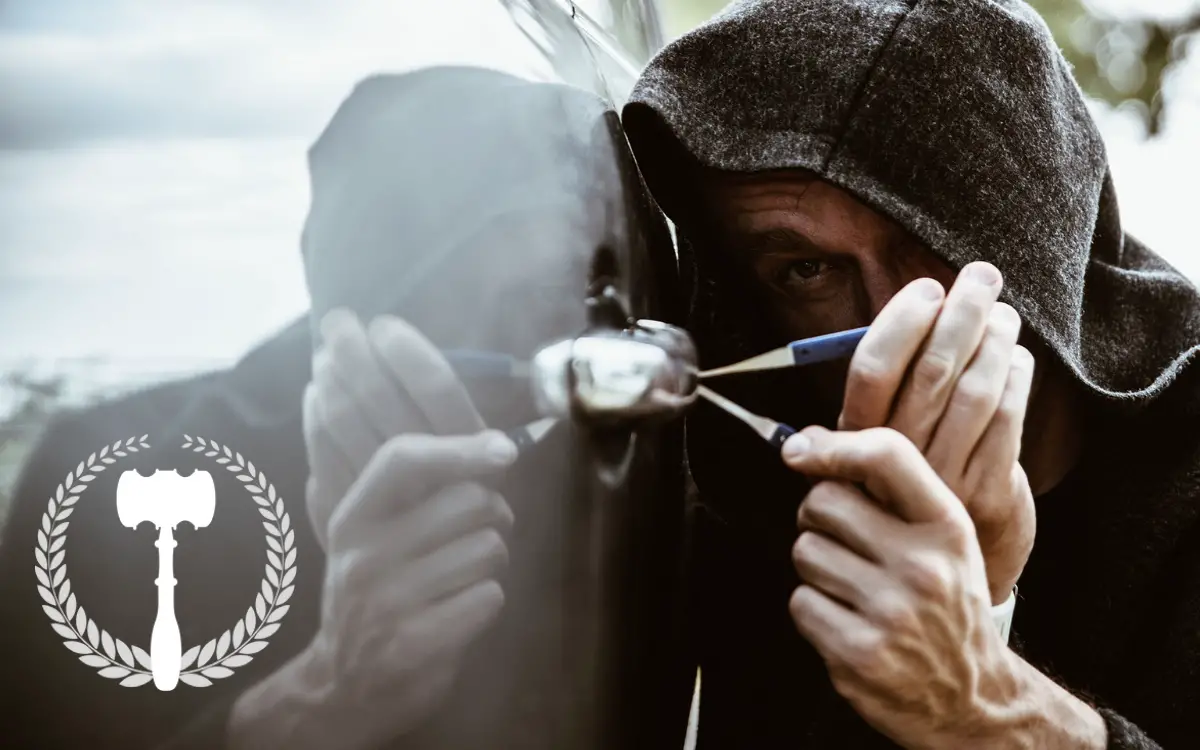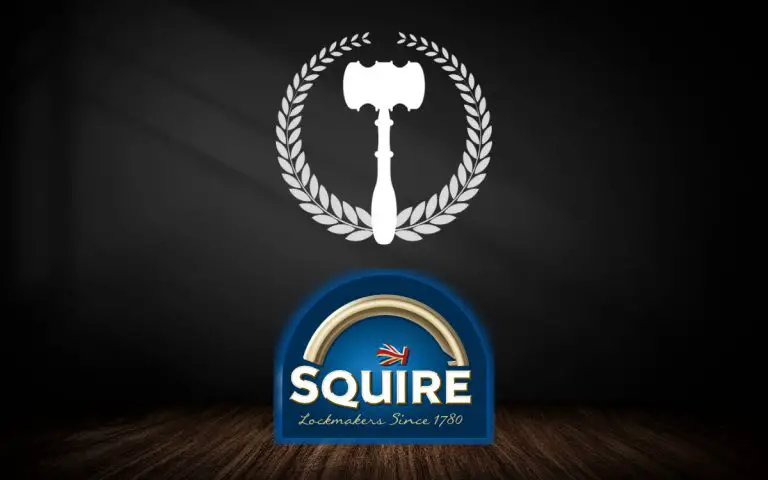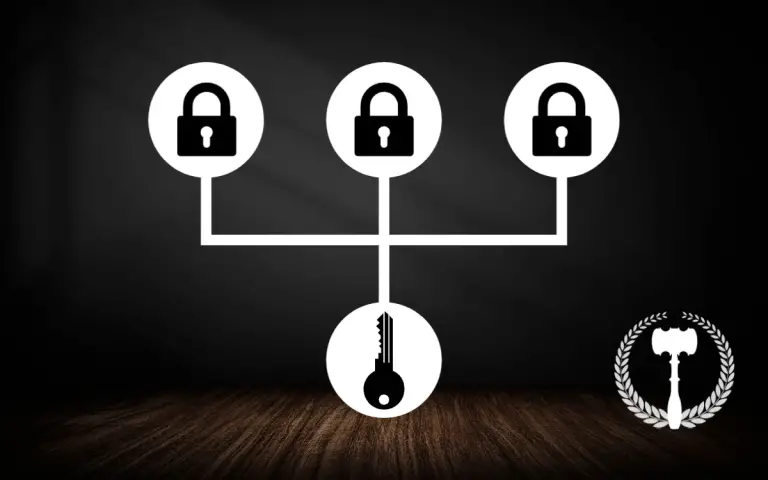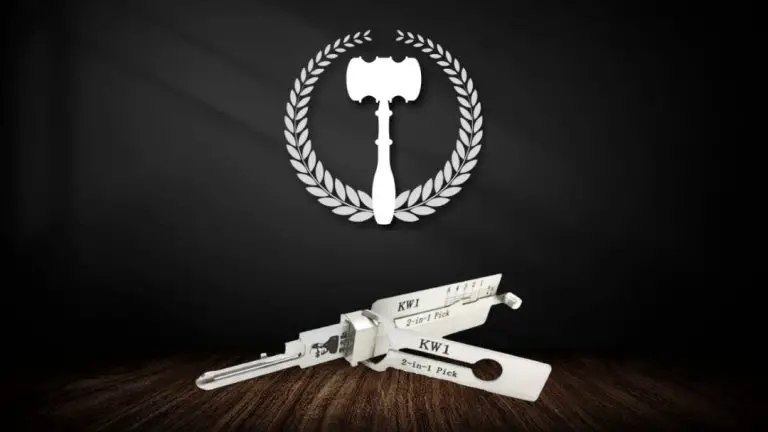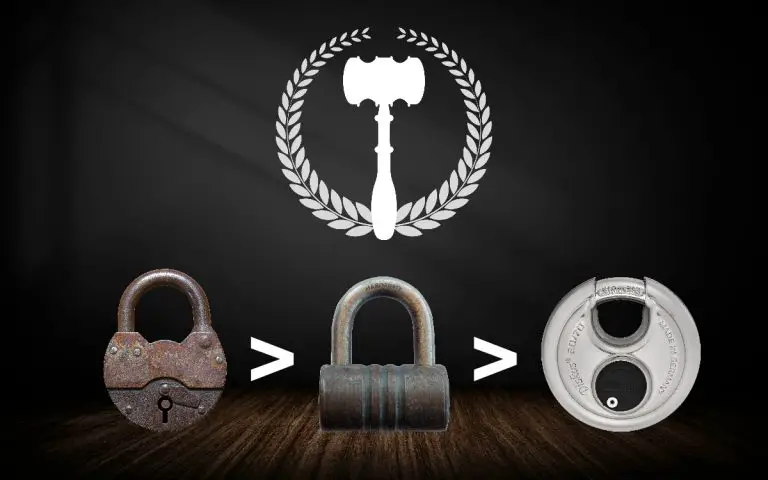13 Myths about Lock Picking Uncovered HERE
Lock picking has been shrouded in mystery and misconception for as long as it has existed. People often associate it with criminal activity and assume that anyone who picks locks must be a thief or a burglar.
In reality, lock picking is a legitimate skill that is used by professionals in various fields such as law enforcement, security, locksmiths, and people who pick locks as a hobby.
In this article, we will take a closer look at some of the most common myths and lies about lock picking and separate fact from fiction.
Busting Lockpicking Myths
So what are the biggest myths about lockpicking then? Are some of these ideas true or is all that you have seen and heard about this activity in the media wrong? Let’s find out…
Lock Pickers are Criminals – BUSTED
One of the most common myths about lock picking is that it is exclusively used by criminals, burglars, and thieves to gain unlawful entry into buildings or vehicles.
This could not be further from the truth. While there are certainly some individuals who use lock picking for illegal purposes, the majority of people who practice lock picking do so for legitimate reasons.
Law enforcement officials, for example, may use lock picking to gain access to a building or vehicle during an emergency situation.

Lock Picking is Easy – BUSTED
While there are some locks that are easy to pick many locks are much harder to pick and require a lot of skill and good tools. I am sure you have seen a movie where a character pops open a lock with just a hairpin, all while keeping a poker face. But let’s get real, it’s not as easy as it looks.
Sure, there are some locks that you might crack open easily, but don’t let that fool you. There are a ton of locks out there that would give even experienced locksmiths a run for their money. To take on these tough nuts, you need some seriously good tools, a deep knowledge of how different locks work, and lots of hands-on experience. And even if you’re armed with all this, you gotta remember that lockpicking isn’t just about the right tools and know-how. It’s also about having patience, a gentle touch, and quick fingers to make it all work together.
Lock Picking and Lock Picks are Ilegal – BUSTED
Another common myth is that owning lock picks or lock picking is illegal. While it is true that picking a lock without the owner’s permission is illegal, owning and using lock picks is not necessarily against the law. In fact, many lock picking tools are sold legally online and in stores.
Lock Picking in Movies – BUSTED
Many people have been exposed to lock picking through movies and television shows, where it is often portrayed as an effortless and quick process. However, the reality is far from this depiction. Lock picking is a delicate and precise skill that requires patience, practice, and a deep understanding of how locks work. Most of the techniques shown in movies are not accurate, and the tools used are often unrealistic.
Any Lock Can be Picked – BUSTED
All locks can be picked but it depends on the difficulty of the lock as to how easy it will be. Some locks are more difficult to pick than others, and some are virtually impossible to pick without the correct tools and expertise. For example, the Bowley lock has only been picked by 5 people in the world.
Locksmiths are Lockpickers, and all Lockpickers are Locksmiths – BUSTED
Locksmiths and lockpickers are two different groups of people. While there are some crossovers with some people doing both and similarities with the tools and things they work on there are some big differences.
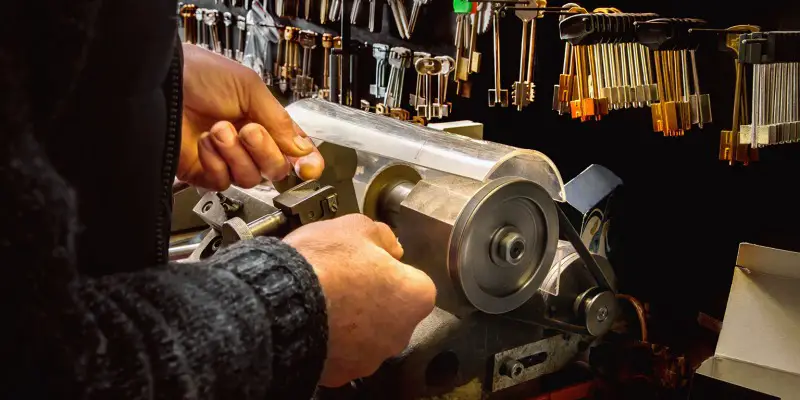
- Lockpickers are enthusiasts that see locks and lock picking as a hobby and an interest. It is a challenge to pick locks and enhance your skills. Lock pickers collect locks, make tools and treat lockpicking as a puzzle and a challenge.
- Locksmiths are professionals that work on locks. They have tools to open them but the majority of their time is spent working on them, installing and changing locks not focussing on the intricate details of picking them.
You Can Pick a Lock in Seconds – BUSTED
Another common misconception about lock picking is that it can be done quickly and easily.
How long does it take to pick a lock?
It can take anywhere from a couple of seconds to 30 minutes or more depending on the difficulty of the lock.
In reality, the time it takes to pick a lock varies depending on the type of lock, the skill level of the picker, and the tools used. While some locks can be picked in a matter of seconds, others can take hours of trying to get open and there are some locks that pickers never get open. These locks normally get relegated to the naughty bucket.
Master Keys Can Open Any Lock – BUSTED
Master keys are special keys that can open any lock in a specific system like all locks in a hotel for example. but mater keys can not simply open any lock you come across.
Many people believe that master keys can open any lock. While master keys do exist, they are typically only used in commercial or industrial settings, where multiple locks need to be accessed by a single key. Master keys are not capable of opening every lock, and attempting to use a master key on a lock that it is not designed for can damage the lock.
You Can Pick Any Lock With a Paperclip or Hair Pin – BUSTED
One of the most common tropes in films and TV, you may have seen it on Macgyver, is where someone takes a hairpin and with a simple bend of the pin sticks it in a lock and in a second or two, Presto they are in. This is very wrong for many reasons.
It is often said that a skilled lock picker can use anything from a paperclip to a hairpin to pick a lock. While it is true that some makeshift tools can be used for lock picking, it is not recommended. These tools are often ineffective and can damage the lock or cause it to become permanently stuck.
Using a Stethoscope to Crack a Safe – BUSTED
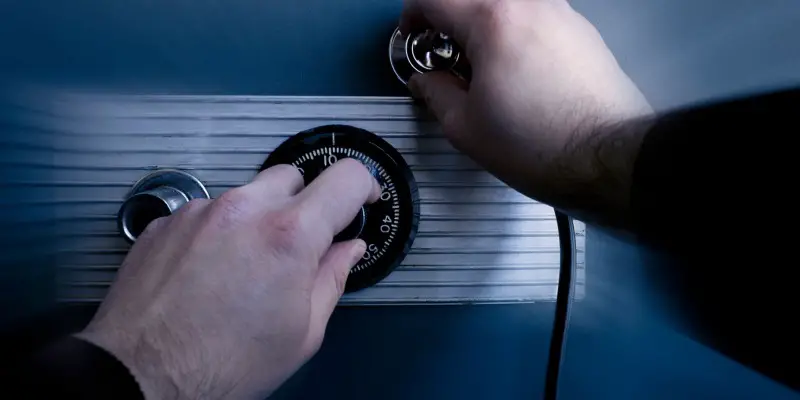
Simply put no. While stethoscopes could be used for this purpose they are not designed for it and there are much better instruments that can be used as an aid for cracking a safe. But in general, safes are cracked by feel and not through listening to the parts of the lock mechanism interacting.
A Skeleton Can Key Open Any Lock – BUSTED
The simple answer is no. A “skeleton key” refers to a key that can open multiple locks within a specific system, but it cannot universally open any lock. Its effectiveness depends on the lock’s design and mechanism. Modern lock technology has largely phased out skeleton keys, instead using more complex, unique keys, or “master keys” within a specific system.
FAQ’s about Lock Picking
Is lock picking real?
Yes, lock picking is a real and legitimate skill that is used by professionals in various fields. It requires knowledge of how locks work and the use of specialized tools to manipulate the lock’s internal components.
Is it really possible to pick a lock with a paperclip?
While it is possible to pick some locks with a paperclip or other makeshift tools, it is difficult and not recommended.
These tools can damage the lock and may not be effective on more advanced locks. Additionally, using improvised tools to pick a lock without the owner’s permission is illegal.
How hard is it to actually pick a lock?
Picking a lock can be difficult and time-consuming, especially for more advanced locks. It requires patience, skill, and a deep understanding of the lock’s internal components.
While some locks can be picked quickly, others may require hours or even days of practice and effort to open.
Legality and Ethics of Locksport
While lock picking itself is not inherently illegal, there are laws and regulations in place in many countries and jurisdictions that govern the practice. In some places, possessing lock picking tools without a valid reason or permission can be considered a crime. Additionally, using lock picking to gain access to a property without the owner’s consent is a criminal offense.
From an ethical standpoint, it is important to recognize the potential consequences of lock picking and to use the skill responsibly. Using lock picking for illegal or unethical purposes can result in serious legal consequences, including fines, imprisonment, and a criminal record. Furthermore, using lock picking to gain access to someone else’s property without their consent is a violation of their privacy and can cause harm or damage.
The Locksport (Lock picking) community has a code of ethics that all hobbyist lock pickers are expected to follow and the community upholds these rules for the members of its own community.
Responsible lock picking involves using the skill only for legitimate purposes, with the owner’s consent, or in emergency situations. It is also important to respect the privacy and property of others and to avoid using lockpicking for any unlawful or unethical purposes.
To Sum up
In conclusion, lock picking is a legitimate skill that is used by professionals in various fields, and it is important to separate fact from fiction and dispel common myths and misconceptions about it. While lock picking itself is not inherently illegal, there are laws and regulations in place in many countries and jurisdictions that govern the practice. It is also important to recognize the potential consequences of lock picking and to use the skill responsibly, avoiding any unlawful or unethical practices.

Practicing responsible lock picking involves using the skill only for legitimate purposes, for the enjoyment of the hobby, with the owner’s consent or in emergency situations.
It is also important to respect the privacy and property of others and to avoid using lock picking for any unlawful or unethical purposes. By practicing lock picking responsibly and with caution, we can ensure that the skill is used in a way that benefits society and does not cause harm or violate the privacy of others.
If you found this article useful or interesting, please share it with someone that will also enjoy it.
Thank you and happy picking.


